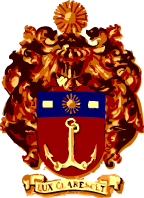Bas Dutilh co-author of article “The human gut microbiome and health inequities”
Bas Dutilh has contributed to an article about the influence of microbes such as bacteria, fungi, and viruses that live in the human digestive tract on health inequities. The article was published in the Proceedings of the National Academy of Sciences of the USA (PNAS) on June 22, 2021 (https://doi.org/10.1073/pnas.2017947118).
Individuals who are minoritized as a result of race, sexual identity, gender, or socioeconomic status experience a higher prevalence of many diseases. Understanding the biological processes that cause and maintain these socially driven health inequities is essential for addressing them. Our intestinal flora, also known as the human gut microbiome is strongly shaped by host environmental factors and affects host metabolic, immune, and neuroendocrine functions, making it an important pathway by which differences in experiences caused by social, political, and economic forces could contribute to health inequities. At the same time, most studies that investigate the gut microbiome focus on majority populations, while few include the effects of the microbiome on health and disease in minorities. The authors argue that accounting for host-gut microbe interactions will improve understanding and management of health inequities, and that health policy must begin to consider the microbiome as an important pathway linking environments to population health.
